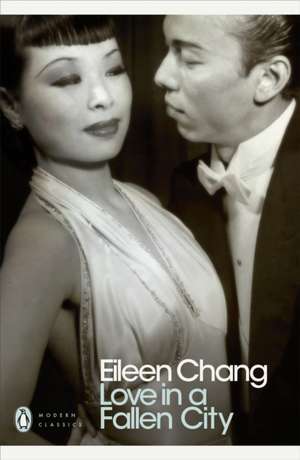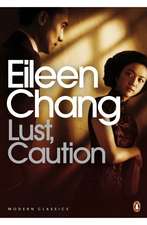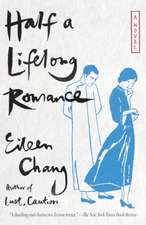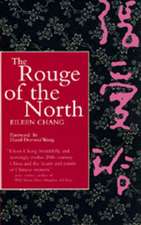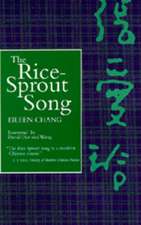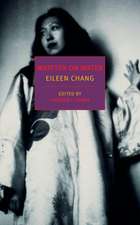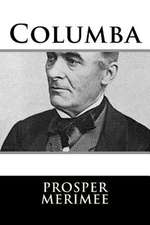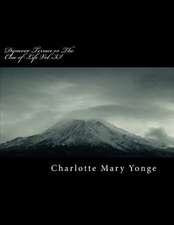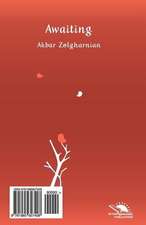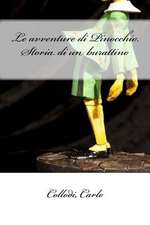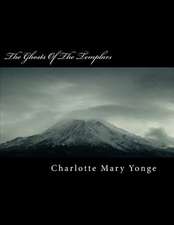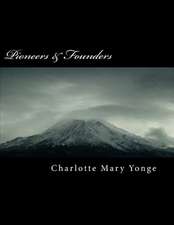Love in a Fallen City: Penguin Modern Classics
Autor Eileen Changen Limba Engleză Paperback – 5 dec 2007
| Toate formatele și edițiile | Preț | Express |
|---|---|---|
| Paperback (2) | 59.00 lei 26-32 zile | +21.87 lei 7-13 zile |
| Penguin Books – 5 dec 2007 | 59.00 lei 26-32 zile | +21.87 lei 7-13 zile |
| NEW YORK REVIEW OF BOOKS – 30 sep 2006 | 100.59 lei 3-5 săpt. |
Din seria Penguin Modern Classics
- 17%
 Preț: 41.41 lei
Preț: 41.41 lei -
 Preț: 82.90 lei
Preț: 82.90 lei -
 Preț: 80.98 lei
Preț: 80.98 lei - 15%
 Preț: 48.87 lei
Preț: 48.87 lei - 17%
 Preț: 52.07 lei
Preț: 52.07 lei - 19%
 Preț: 59.39 lei
Preț: 59.39 lei - 18%
 Preț: 46.05 lei
Preț: 46.05 lei - 17%
 Preț: 52.49 lei
Preț: 52.49 lei -
 Preț: 69.06 lei
Preț: 69.06 lei - 16%
 Preț: 58.66 lei
Preț: 58.66 lei - 17%
 Preț: 51.67 lei
Preț: 51.67 lei -
 Preț: 81.84 lei
Preț: 81.84 lei - 18%
 Preț: 46.25 lei
Preț: 46.25 lei -
 Preț: 97.20 lei
Preț: 97.20 lei - 17%
 Preț: 52.33 lei
Preț: 52.33 lei - 15%
 Preț: 48.90 lei
Preț: 48.90 lei - 16%
 Preț: 53.55 lei
Preț: 53.55 lei - 18%
 Preț: 51.39 lei
Preț: 51.39 lei -
 Preț: 63.28 lei
Preț: 63.28 lei - 16%
 Preț: 53.93 lei
Preț: 53.93 lei - 18%
 Preț: 51.00 lei
Preț: 51.00 lei - 15%
 Preț: 49.40 lei
Preț: 49.40 lei - 15%
 Preț: 55.26 lei
Preț: 55.26 lei - 16%
 Preț: 48.30 lei
Preț: 48.30 lei - 17%
 Preț: 52.10 lei
Preț: 52.10 lei -
 Preț: 81.61 lei
Preț: 81.61 lei - 17%
 Preț: 68.49 lei
Preț: 68.49 lei - 18%
 Preț: 46.25 lei
Preț: 46.25 lei - 18%
 Preț: 46.02 lei
Preț: 46.02 lei - 16%
 Preț: 42.26 lei
Preț: 42.26 lei - 17%
 Preț: 51.66 lei
Preț: 51.66 lei - 16%
 Preț: 48.45 lei
Preț: 48.45 lei - 16%
 Preț: 42.69 lei
Preț: 42.69 lei - 15%
 Preț: 54.63 lei
Preț: 54.63 lei - 18%
 Preț: 46.31 lei
Preț: 46.31 lei - 18%
 Preț: 46.31 lei
Preț: 46.31 lei - 16%
 Preț: 53.59 lei
Preț: 53.59 lei - 16%
 Preț: 53.11 lei
Preț: 53.11 lei -
 Preț: 95.04 lei
Preț: 95.04 lei - 16%
 Preț: 79.93 lei
Preț: 79.93 lei - 18%
 Preț: 46.02 lei
Preț: 46.02 lei - 16%
 Preț: 68.94 lei
Preț: 68.94 lei -
 Preț: 81.35 lei
Preț: 81.35 lei - 17%
 Preț: 51.60 lei
Preț: 51.60 lei - 18%
 Preț: 51.38 lei
Preț: 51.38 lei - 16%
 Preț: 53.36 lei
Preț: 53.36 lei - 18%
 Preț: 50.73 lei
Preț: 50.73 lei - 16%
 Preț: 48.46 lei
Preț: 48.46 lei - 16%
 Preț: 53.37 lei
Preț: 53.37 lei - 17%
 Preț: 52.33 lei
Preț: 52.33 lei
Preț: 59.00 lei
Preț vechi: 70.08 lei
-16% Nou
Puncte Express: 89
Preț estimativ în valută:
11.29€ • 11.79$ • 9.34£
11.29€ • 11.79$ • 9.34£
Carte disponibilă
Livrare economică 20-26 martie
Livrare express 01-07 martie pentru 31.86 lei
Preluare comenzi: 021 569.72.76
Specificații
ISBN-13: 9780141189369
ISBN-10: 0141189363
Pagini: 352
Dimensiuni: 133 x 199 x 21 mm
Greutate: 0.26 kg
Editura: Penguin Books
Colecția Penguin Classics
Seria Penguin Modern Classics
Locul publicării:London, United Kingdom
ISBN-10: 0141189363
Pagini: 352
Dimensiuni: 133 x 199 x 21 mm
Greutate: 0.26 kg
Editura: Penguin Books
Colecția Penguin Classics
Seria Penguin Modern Classics
Locul publicării:London, United Kingdom
Notă biografică
Eileen
Chang
(1920-1995)
was
born
into
an
aristocratic
family
in
Shanghai.
Chang
studied
literature
at
the
University
of
Hong
Kong,
but
the
Japanese
attack
on
the
city
in
1941
forced
her
to
return
to
occupied
Shanghai,
where
she
was
able
to
publish
the
stories
and
essays
(collected
in
two
volumes,Romances,
1944,
andWritten
on
Water,
1945)
that
soon
made
her
a
literary
star.
The
rise
of
Communist
influence
made
it
increasingly
difficult
for
Chang
to
continue
living
in
Shanghai;
she
moved
to
Hong
Kong
in
1952,
then
emigrated
to
the
United
States
three
years
later.
In
spite
of
the
tremendous
revival
of
interest
in
her
work
that
began
in
Taiwan
and
Hong
Kong
in
the
1970s,
and
that
later
spread
to
mainland
China,
Chang
became
ever
more
reclusive
as
she
grew
older.
Eileen
Chang
was
found
dead
in
her
Los
Angeles
apartment
in
September
1995.
Karen S. Kingsbury has lived in Chinese-speaking cities for nearly two decades. She taught English in Chonquing on the Whitman-in-China program, studied Chinese in Taipei and, for fourteen years, taught English language and literature at Tunghai University in Taichung. Her Columbia University doctoral dissertation was on Eileen Chang, and she has published previous translations of Chang's essays and fiction inRenditionsand inThe Columbia Anthology of Modern Chinese Literature. She lives in Seattle.
Karen S. Kingsbury has lived in Chinese-speaking cities for nearly two decades. She taught English in Chonquing on the Whitman-in-China program, studied Chinese in Taipei and, for fourteen years, taught English language and literature at Tunghai University in Taichung. Her Columbia University doctoral dissertation was on Eileen Chang, and she has published previous translations of Chang's essays and fiction inRenditionsand inThe Columbia Anthology of Modern Chinese Literature. She lives in Seattle.
Recenzii
"In lush and lavish style, the four novellas and two short stories in Love in a Fallen City explore the effects of war and westernization on her characters' domestic lives. Chang establishes many oppositions---East vs. West, tradition vs. modernization, spiritual love vs. physical love---and then artfully undermines them to reveal subtler tensions. The beauty of her fiction derives in a great part from its musical quality, as translated from the Chinese by Karen S. Kingsbury and the author." –The New York Times Book Review
"Money and the scramble to get it are at the center of many of our best novels, and this is nowhere truer than in the work of Jane Austen. The financial security that Austen's heroines are always chasing is so inextricably entangled with courtship, love and marriage that one can lose sight of the pound notes (not to mention the plantation slavery) behind the lilies, lace and wedding veils. This is never the case with the world Eileen Chang presents in the tales that constitute Love in a Fallen City. Think of her as Jane Austen with the gloves off." –Japan Times
“This collection of short fiction dating from the 1940s is set in Shanghai and Hong Kong. And it's one tough, seductive little book as it tracks the fates of grasping, calculating heroines who brim over with film-noir appeal…Seattle translator Karen S. Kingsbury has done a stellar job of making Chang's prose read as lushly and acerbically in English as it presumably does in Chinese.” –Seattle Times
"This posthumous collection contains six vibrant stories that depict life in post-WWII China...Evocative and vivid, Chang's stories bristle with equal parts passion and resentment. YA: The youthful characters will draw teens." –Booklist
"A Major Rediscovery." –Kirkus Reviews
"Chang died in 1995 in Los Angeles, having emigrated to the U.S. in 1955 at 35. These six stories, most available in English for the first time, were published to acclaim in China and Hong Kong in the '40s; they explore, bewitchingly, the myriad ways love overcomes (or doesn't) the intense social constraints of time and place. In the compact "Sealed Off," Shanghai briefly shuts down in defense against a blockade, and strangers on a tram allow their inner yearnings to surface, with consequences at once momentous and static. In the layered title story, a couple taunt each other with false estrangements as they fall in love, then are forced to confront one another directly through wartime privations. The startling novella "The Golden Cangue," told with upstairs-downstairs shifts in perspective, fugues around a wife, resentful of her disabled husband and reviled by his family, who seeks reassurance in opium. In these eloquent tragedies, Chang plunges readers in medias res. She expertly burdens her characters with failed dreams and stifled possibilities, leads them to push aside the heavy curtains of family and convention, and then shows them a yawning emptiness. Their different responses are brilliantly underplayed and fascinating." –Publishers Weekly (Starred Review)
"With language as sharp as a knife edge, Eileen Chang cut open a huge divide in Chinese culture, between the classical patriarchy and our troubled modernity. She was one of the very few able truly to connect that divide, just as her heroines often disappeared inside it. She is the fallen angel of Chinese literature, and now, with these excellent new translations, English readers can discover why she is so revered by Chinese readers everywhere." –Ang Lee
“[O]ne of the most popular Chinese writers of the 20th century and a woman who made a major contribution to the cultural life of Shanghai.”–Shanghai Daily
“[Her] finely honed psychological studies and precise language won her acclaim as a giant of modern Chinese literature…”–The New York Times
“…the most gifted Chinese writer to emerge in the 40’s”–C.T. Hsia, Columbia University
“Chang’s obsession with privacy made her known as the ‘Garbo of Chinese letters,’ and photographs reveal a woman whose elegance and contemplative introspection justify that title. Nevertheless, from out of the frenzy of renown that surrounded her, the sheer quality of Chang’s prose emerges clearly, and her voice–raw, low, exquisitely modulated–has a sound like none other in the canon of Chinese, or for that matter, American prose stylists.”–Boston Review
“Eileen Chang is no doubt the most talented woman writer in 20th century China.”–David Der-wei Wang, Harvard University
"Money and the scramble to get it are at the center of many of our best novels, and this is nowhere truer than in the work of Jane Austen. The financial security that Austen's heroines are always chasing is so inextricably entangled with courtship, love and marriage that one can lose sight of the pound notes (not to mention the plantation slavery) behind the lilies, lace and wedding veils. This is never the case with the world Eileen Chang presents in the tales that constitute Love in a Fallen City. Think of her as Jane Austen with the gloves off." –Japan Times
“This collection of short fiction dating from the 1940s is set in Shanghai and Hong Kong. And it's one tough, seductive little book as it tracks the fates of grasping, calculating heroines who brim over with film-noir appeal…Seattle translator Karen S. Kingsbury has done a stellar job of making Chang's prose read as lushly and acerbically in English as it presumably does in Chinese.” –Seattle Times
"This posthumous collection contains six vibrant stories that depict life in post-WWII China...Evocative and vivid, Chang's stories bristle with equal parts passion and resentment. YA: The youthful characters will draw teens." –Booklist
"A Major Rediscovery." –Kirkus Reviews
"Chang died in 1995 in Los Angeles, having emigrated to the U.S. in 1955 at 35. These six stories, most available in English for the first time, were published to acclaim in China and Hong Kong in the '40s; they explore, bewitchingly, the myriad ways love overcomes (or doesn't) the intense social constraints of time and place. In the compact "Sealed Off," Shanghai briefly shuts down in defense against a blockade, and strangers on a tram allow their inner yearnings to surface, with consequences at once momentous and static. In the layered title story, a couple taunt each other with false estrangements as they fall in love, then are forced to confront one another directly through wartime privations. The startling novella "The Golden Cangue," told with upstairs-downstairs shifts in perspective, fugues around a wife, resentful of her disabled husband and reviled by his family, who seeks reassurance in opium. In these eloquent tragedies, Chang plunges readers in medias res. She expertly burdens her characters with failed dreams and stifled possibilities, leads them to push aside the heavy curtains of family and convention, and then shows them a yawning emptiness. Their different responses are brilliantly underplayed and fascinating." –Publishers Weekly (Starred Review)
"With language as sharp as a knife edge, Eileen Chang cut open a huge divide in Chinese culture, between the classical patriarchy and our troubled modernity. She was one of the very few able truly to connect that divide, just as her heroines often disappeared inside it. She is the fallen angel of Chinese literature, and now, with these excellent new translations, English readers can discover why she is so revered by Chinese readers everywhere." –Ang Lee
“[O]ne of the most popular Chinese writers of the 20th century and a woman who made a major contribution to the cultural life of Shanghai.”–Shanghai Daily
“[Her] finely honed psychological studies and precise language won her acclaim as a giant of modern Chinese literature…”–The New York Times
“…the most gifted Chinese writer to emerge in the 40’s”–C.T. Hsia, Columbia University
“Chang’s obsession with privacy made her known as the ‘Garbo of Chinese letters,’ and photographs reveal a woman whose elegance and contemplative introspection justify that title. Nevertheless, from out of the frenzy of renown that surrounded her, the sheer quality of Chang’s prose emerges clearly, and her voice–raw, low, exquisitely modulated–has a sound like none other in the canon of Chinese, or for that matter, American prose stylists.”–Boston Review
“Eileen Chang is no doubt the most talented woman writer in 20th century China.”–David Der-wei Wang, Harvard University
